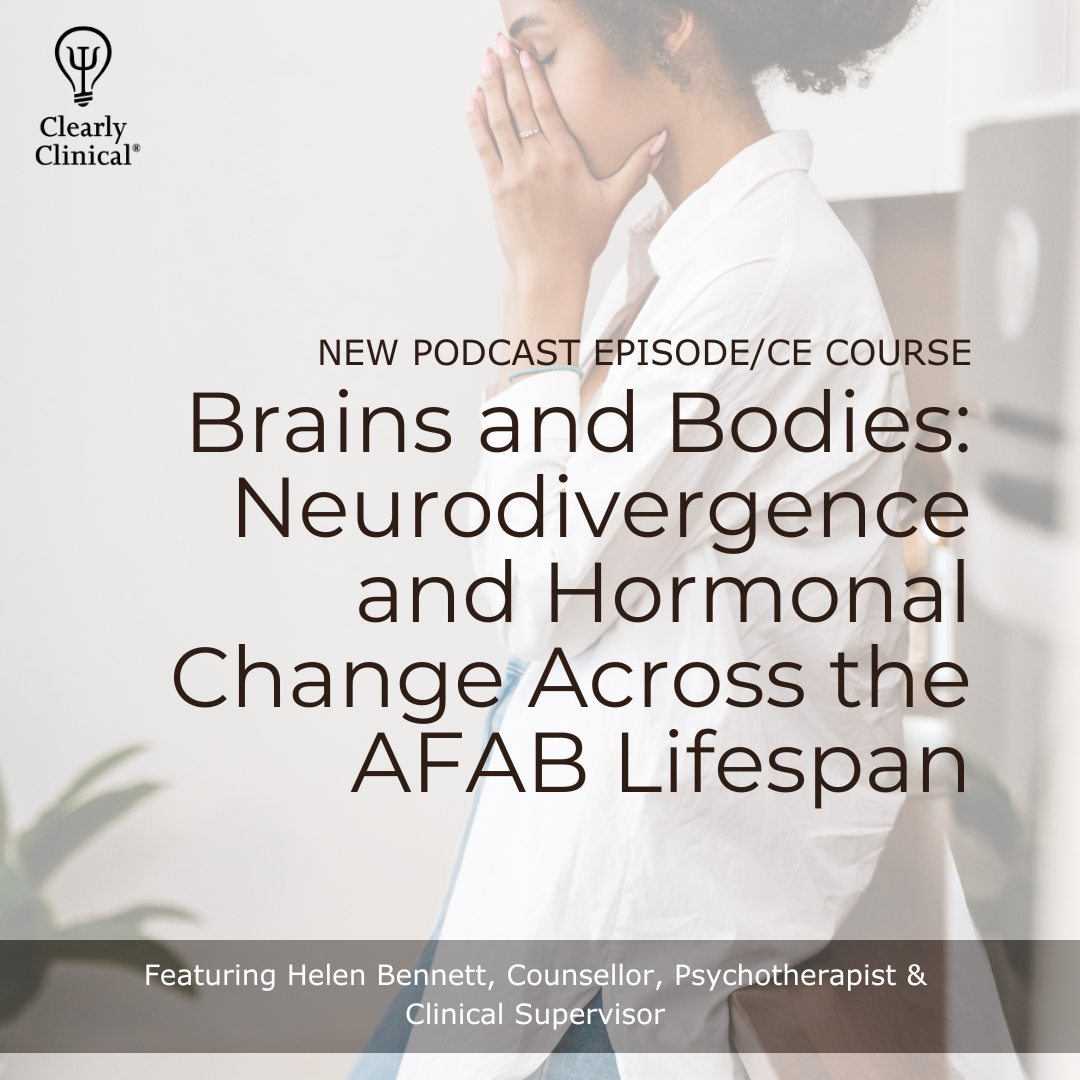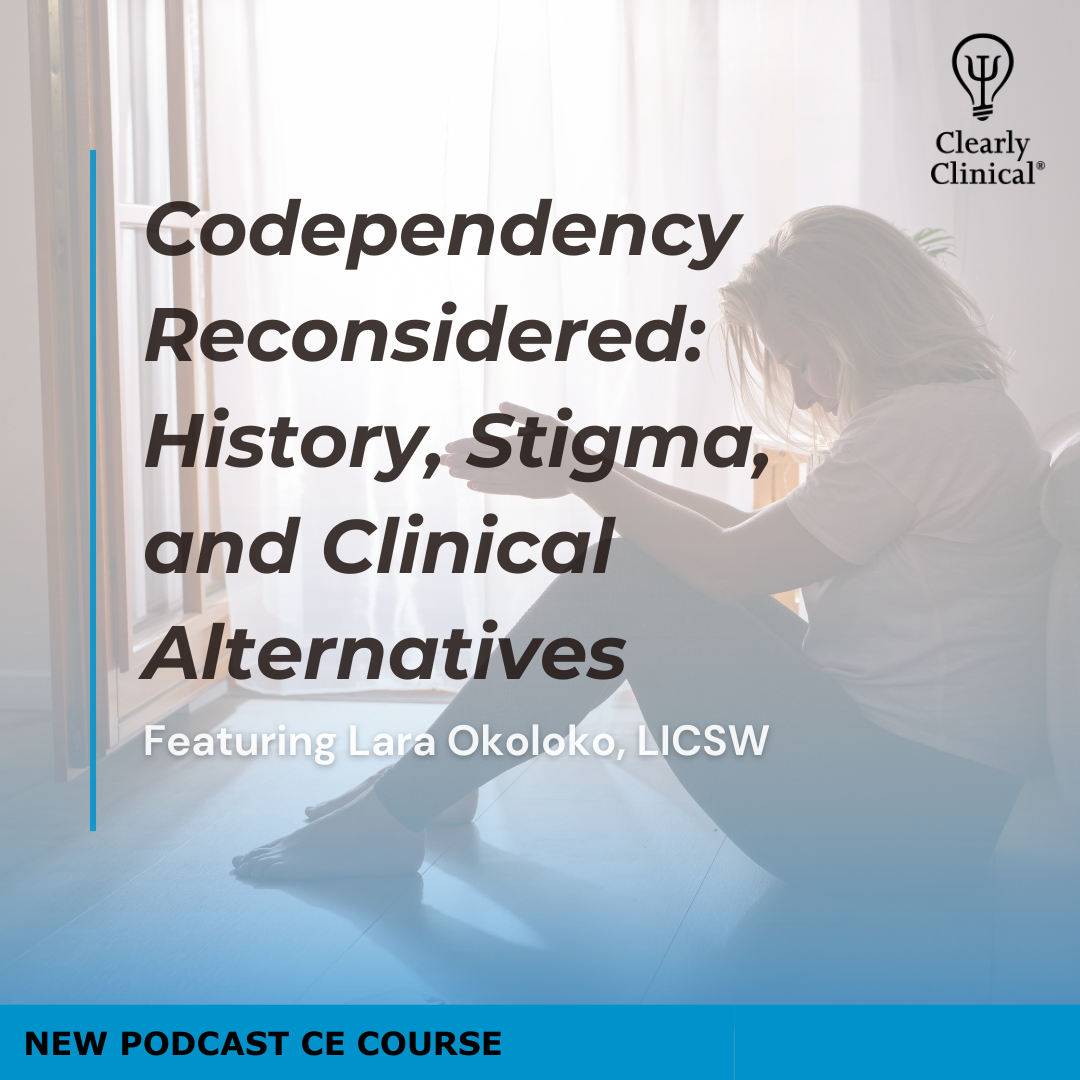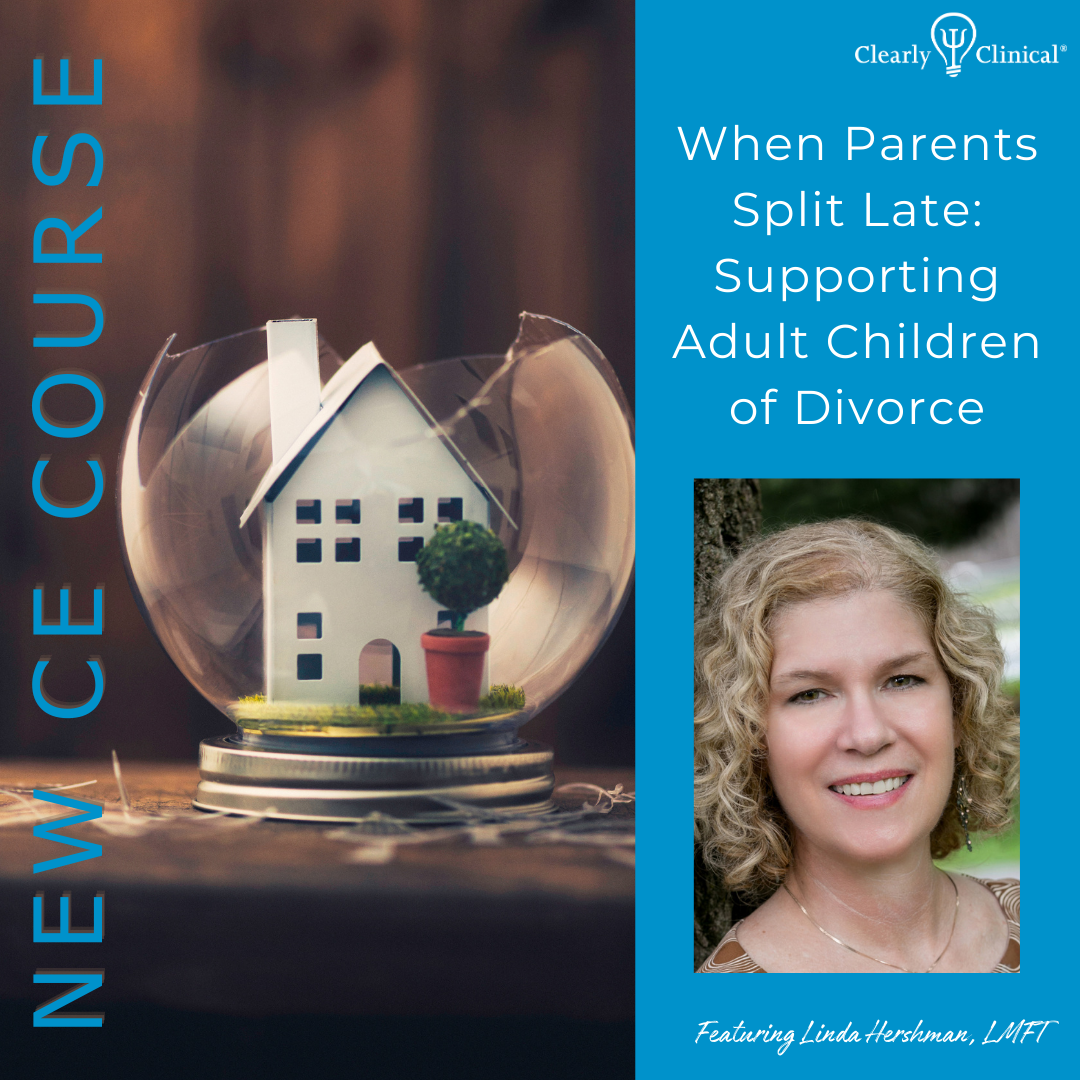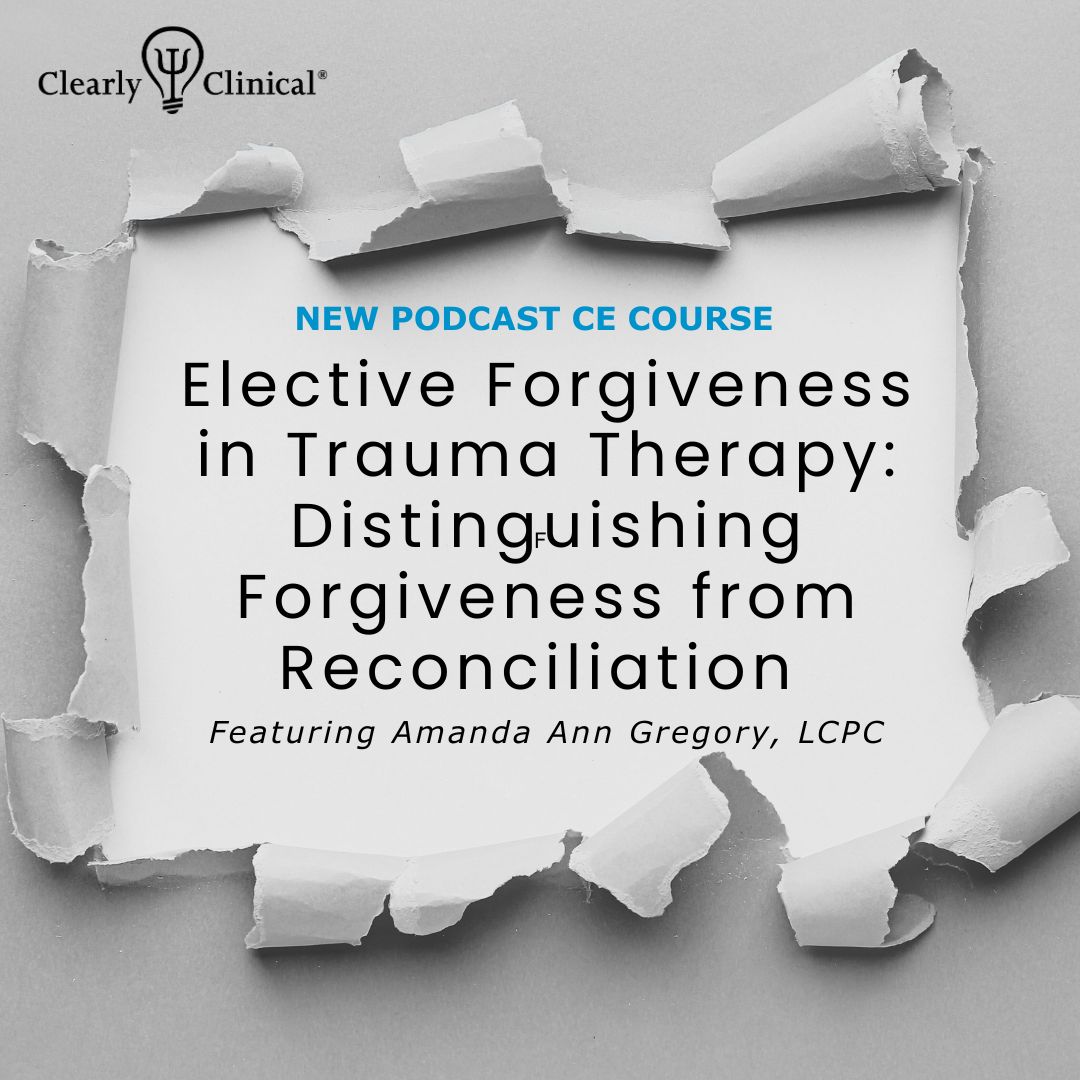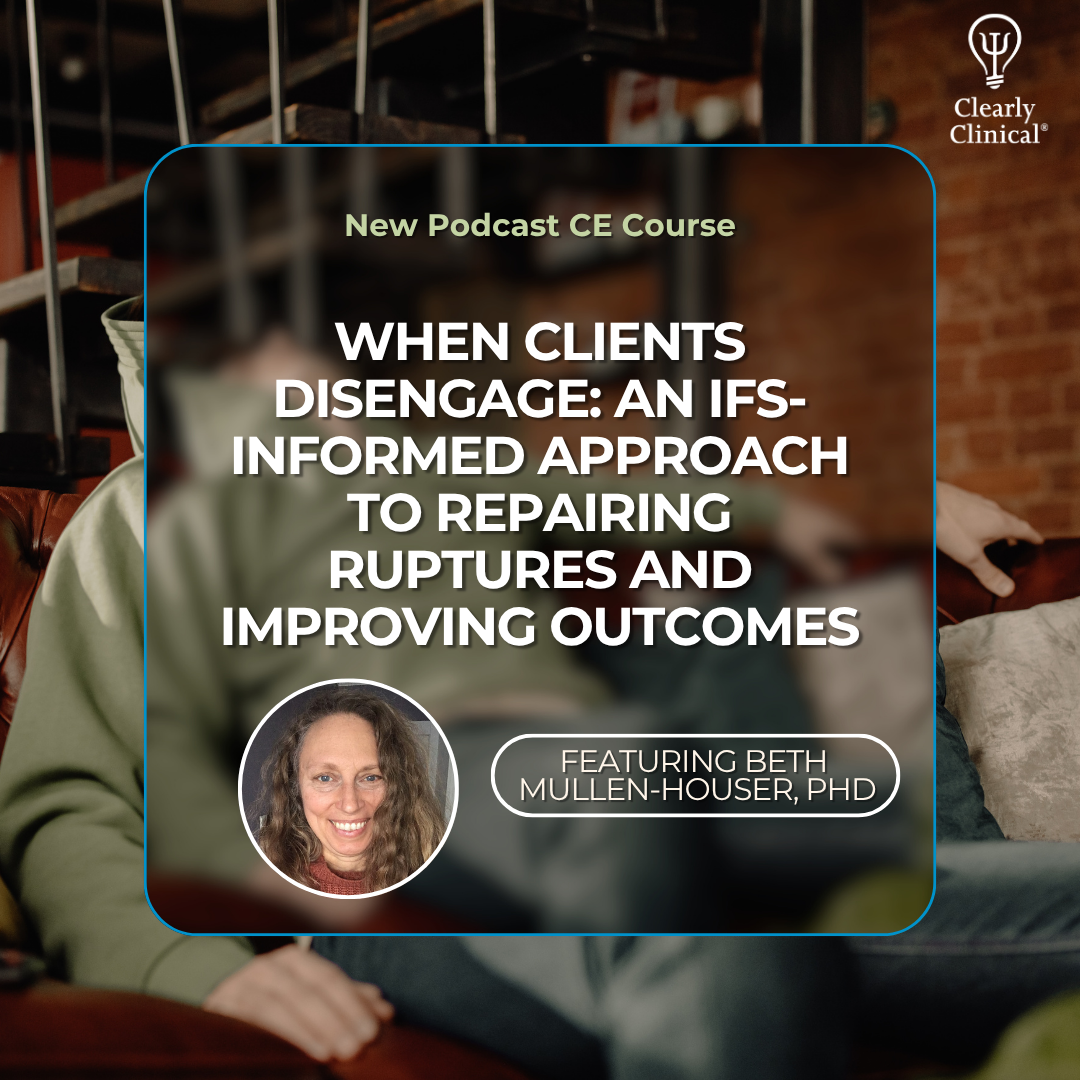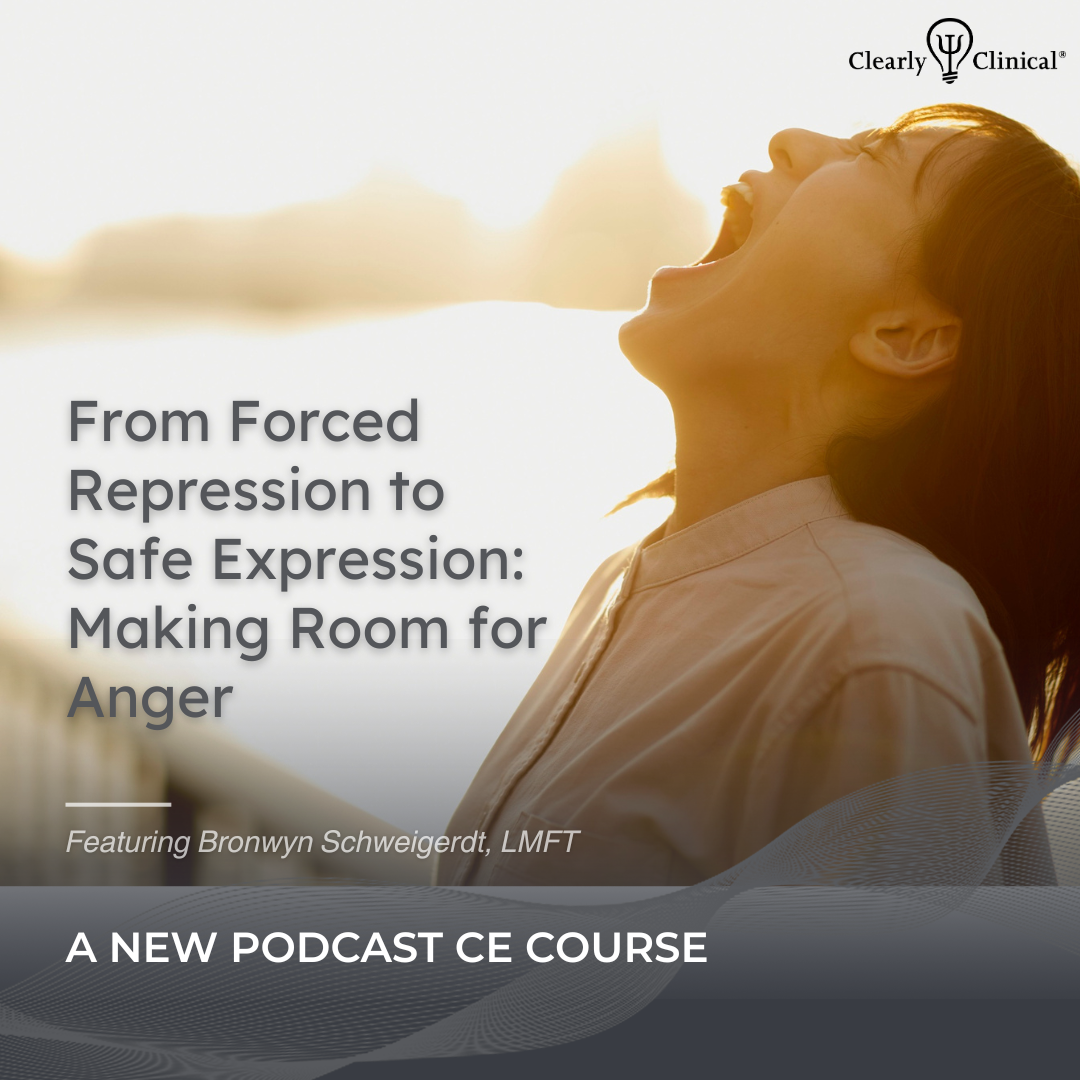Hey, White Therapists, Here's Where We Start... A Free CE Podcast CE Course
/Hi there. Beth here. Yep, Clearly Clinical’s founder… a white woman.
I want to invite everyone into this conversation, and I want to approach it with compassion and grace. I’ve been afraid to step into this topic... I’ve been afraid to say the wrong thing. By getting into this conversation, I may stir up lots of feelings. I simply can’t let my fear of getting it wrong make the decisions. Our black and African American peers need people like me to stop being scared of saying the wrong thing. They need *us* to own up to our blind spots and show up.
I’ve seen innumerable social media posts on this topic in light of recent events, by white clinicians: Where do we start, how do we not make things worse, and how do we ‘show up’ in a time like this? Like many, I saw those questions and just blinked back at the screen.
I asked my dear colleague Frank Baird, LMFT, LPCC, to answer some of these questions. Frank has been doing trainings on the topic of whiteness and race relations for years, and he’s white. I’m white. Yep, you read that right: One white therapist interviewing another white therapist on the topic of race. I’m quite sure Frank and I misstep here, because we’re inherently, “...under the influence of our whiteness,” as Frank says.
But here’s the thing: We’re going to misstep- that’s just part of the deal.
It’s not on POC to teach us how to best support them… we need to teach ourselves and teach one another. Our peers of color need nurturance and rest… they need us to have the conversation amongst ourselves, and to drive change.
Here’s what I love about Frank: He’s got this unassuming and compassionate spirit that informs his guidance on this topic, and, if you give this a listen, I think you’ll see that it’s ok for us to talk about this. You’ll see why we white folks *need* to talk about this. In the interview, Frank breaks down concepts that might make some wince, like White Privilege and White Fragility. Yes, these are uncomfortable topics, but, the very fact that they are uncomfortable signals that they’re worthy of exploration and reflection. We need to examine our conditioning and how it may be impacting our clients. Frank also shares how we dominant-culture therapists can hold space in the therapy room for our clients of color... our fellow Black and African Americans have been through enough, and it’s our job to make therapy as safe a place for them as we can.
I’m not deluding myself: There’s nothing a one-hour podcast CE course can do to change the world. This podcast interview is just flipping over one single rock in a world of boulders, but we’ve got to start somewhere... there's so much we don't cover in this hour, because an hour is so short. From my little corner, one thing I can do is use this CE platform to host a conversation, so that's what I'm doing.
To our Black and African American colleagues: We are here, we are listening to you, and we are willing and able to do the necessary work on ourselves to dismantle racism.




